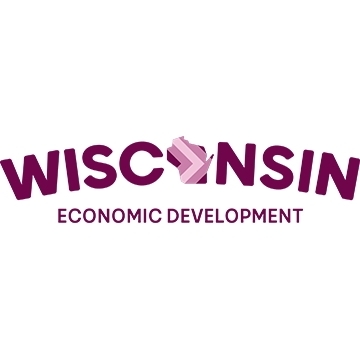WEDC awards $700,000 in grants to support local efforts to provide seed funding for startups
Organizations in Milwaukee, Oshkosh, Whitewater to match state’s investment in technology-based early-stage companies
MADISON, WI. March 7, 2017 – Three economic development organizations have been awarded a total of $700,000 in matching grants from the Wisconsin Economic Development Corporation (WEDC) to be used to provide seed funding for technology-based startups and early-stage companies.
The Milwaukee Development Corporation has received a $500,000 grant under WEDC’s Capital Catalyst Program for the creation of a $1 million seed fund to support companies in advanced manufacturing and other technology sectors. The fund will target seed-stage ventures, including graduates of local accelerator programs such as The BREW, WERCBench Labs, FaBCAP and Gener8tor to provide additional capital for activities leading to investment readiness or revenue generation.
The fund also aims to support growth-focused projects of existing tech companies, as well as other eligible seed-stage businesses with technologies outside the scope of existing area accelerators. The Milwaukee Development Corporation is the operating entity of the Milwaukee 7 economic development organization, which in January received a $60,000 Entrepreneurship Support Grant from WEDC to support its efforts to increase collaboration and develop common strategies to optimize Milwaukee’s entrepreneurship climate.
“Finding and filling gaps in funding for these growing companies – especially those in our most promising cluster industries – is critical to the success of individual businesses and the entire Milwaukee 7 Region,” said Pat O’Brien, Milwaukee 7 executive director. “We are grateful to WEDC for recognizing this need and providing a needed boost to these efforts.”
“This fund is the first of its kind in Winnebago County, the I-41 Corridor and northeastern Wisconsin,” said Jason White, CEO of the Greater Oshkosh Economic Development Corporation. “Greater Oshkosh’s economic development success is predicated on helping our existing businesses grow and showing our entrepreneurs that they are well-supported here in the Fox Valley.”
The Whitewater Community Development Authority has received a $75,000 grant for a seed fund that will provide a diversified portfolio of micro-investments and grants aimed at increasing the number of startups in the city and supporting emerging growth companies.
This marks that the fourth year that WEDC has awarded Capital Catalyst grants to the organization, which has provided capital to 21 technology-based companies to date. Those businesses have successfully raised $4.9 million in additional capital, have achieved over $2.4 million in revenue and employ more than 100 workers.
“I’d like to thank WEDC for this additional investment, which will help ensure that Whitewater continues to be a hotbed of entrepreneurial spirit,” said Jeff Knight, chairman of the Whitewater Community Development Authority. “The many startups that this program has already assisted is truly amazing. We’ve supported many new innovative businesses that would not have had a chance to get started without this very timely help.”
“These three organizations are playing a critical role in facilitating the development of high-growth business ventures in their communities,” said Aaron Hagar, WEDC’s vice president of entrepreneurship and innovation. “The Capital Catalyst Program has a proven track record of results, and we’re looking forward to continued success as we collaborate with these organizations to support next-generation companies.”
Since its inception in 2012, the Capital Catalyst Program has helped organizations and communities provide $3.5 million in seed funding to more than 100 businesses statewide that employ nearly 500 full-time workers. Those companies have generated $127 million in additional investment and revenue.
The program provides matching grants to seed funds managed by local communities or other organizations dedicated to stimulating entrepreneurship. These funds provide grants, loans and/or investments in startups or early-stage, innovative small businesses that operate in their region. Loan repayments and returns on investment stay within the fund to assist additional startups and create a supportive environment for entrepreneurs.
The Capital Catalyst Program is one component of WEDC’s suite of entrepreneurship resources, which includes support for startup accelerators, investor tax credits and technology loans. In addition, WEDC supports and engages an existing statewide network of partners that offers business training, mentorship and financing to aspiring entrepreneurs.
About the Wisconsin Economic Development Corporation
The Wisconsin Economic Development Corporation (WEDC) leads economic development efforts for the state by advancing and maximizing opportunities in Wisconsin for businesses, communities and people to thrive in a globally competitive environment. Working with more than 600 regional and local partners, WEDC develops and delivers solutions representative of a highly responsive and coordinated economic development network. Visit www.inwisconsin.com or follow WEDC on Twitter @_InWisconsin to learn more.
NOTE: This press release was submitted to Urban Milwaukee and was not written by an Urban Milwaukee writer. While it is believed to be reliable, Urban Milwaukee does not guarantee its accuracy or completeness.
Mentioned in This Press Release
Recent Press Releases by Wisconsin Economic Development Corporation
WEDC recognized nationally for excellence in financial transparency
Dec 29th, 2025 by Wisconsin Economic Development CorporationGovernment Finance Officers Association honors WEDC for 12th year
Something New Is Brewing in Southwest Wisconsin
Dec 22nd, 2025 by Wisconsin Economic Development CorporationWired Rabbit Coffee Roasters brings new life to Cuba City’s historic downtown
WEDC, Cascades celebrate company’s growth in Eau Claire
Dec 17th, 2025 by Wisconsin Economic Development Corporation$6 million expansion project will create 36 new jobs, strengthen Wisconsin’s paper industry






















